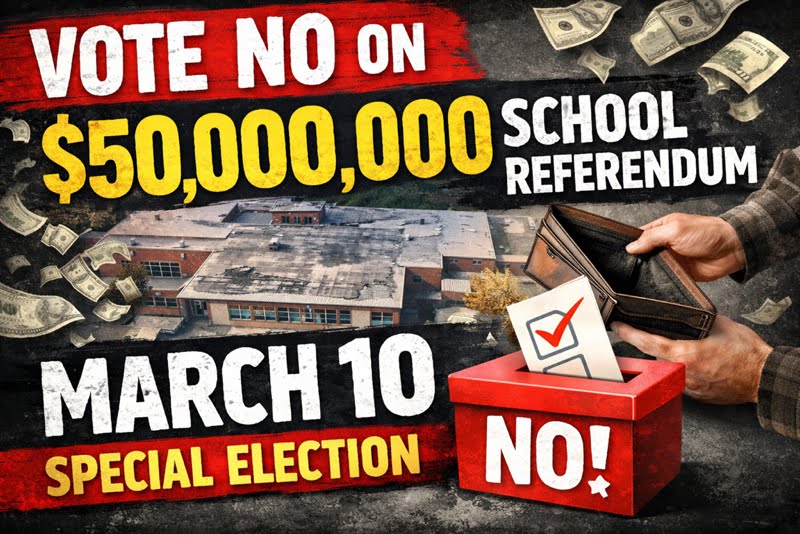When people ask for answers from their local government, they have a right to get them—clearly, directly, and without delay. That’s the whole idea behind New Jersey’s Open Public Records Act (OPRA). But in Berkeley Heights, trying to get even basic information from the public school district has turned into an exercise in frustration: dodged questions, generic email replies, and no one willing to sign their name.
Over the past two months, NJ21st has submitted several records requests to the Berkeley Heights Public School District. What we’ve encountered hasn’t just been slow responses or simple oversight—it’s been a steady pattern of evasiveness. Replies are brief, vague, and come from a faceless district email. No names, no titles, no accountability. And when it comes to topics like police spending or school budgets, that’s a problem.
In April, we asked for a copy of the 2025–26 school district budget in Excel. It’s a format many districts provide without issue. It’s easier to work with, and there’s no legal reason it can’t be shared. The district’s reply? “What you were given is not.” That was it. No further detail. No signature. Just a brush-off from an untraceable email account. The file eventually came—after more follow-up. But to be clear, what we asked for was the budget adopted by the Board. That version is public. It isn’t protected by any draft exemption.
We still haven’t received the school-by-school budget numbers. The district is now suggesting that those figures are somehow still in “draft” form. We’ve made it clear that we’re looking for whatever versions were on hand at the time the full district budget was passed. That’s not deliberation. That’s implementation. Those records should be public.
Instead, they’ve been withheld. And under Superintendent Feltre, this isn’t an isolated case. It’s becoming the norm. Vague responses. No follow-through. No names. Just a slow drip of delay that forces residents to keep asking for what should’ve been answered the first time.
In June, we asked for a breakdown of police-related payments not tied to formal SLEO or SRO contracts. These are records that should already exist. The Superintendent’s office told us it would be a “summer project.” That response should concern anyone who’s ever read the district’s Annual Comprehensive Financial Report (ACFR)—because if this data doesn’t already exist in usable form, we have to ask what was reported in the “security” budget lines of those official filings.
Even more frustrating is the refusal to identify who’s actually managing these requests. We’re not talking about the formal response letters signed by the Business Administrator—we’re talking about the person actively replying to the public using the “[email protected]” email address.
At the most recent BOE meeting, we asked the District directly: who is handling these messages? No one responded. We had to file yet another OPRA request just to find out who’s answering our OPRA requests.
That request is still pending too.
This isn’t just ironic—it’s inefficient, unnecessary, and counterproductive. The District is creating its own paperwork. Every dodged question creates more follow-up. Every vague response leads to another filing. And residents, instead of getting clarity, get automated replies and dead ends.
What’s even more baffling is the legal argument they’re now leaning on to deny school-level budget documents.
In the most recent denial, the District cited a state Supreme Court case—Education Law Center v. NJDOE—to support their position. But that case does the opposite. The court ruled that the public has a right to know how school money is being spent—even if certain documents weren’t submitted to the state. The whole purpose of the case was to push for more transparency, not less. It’s hard to see how the District can point to that ruling and use it to justify keeping school budget breakdowns hidden after the full budget has already been adopted.
And where are the elected officials on this?
Board members like Gale Bradford and Pam Stanley often speak about equity. But when the public asks to see how dollars are being divided among schools—silence. One of Stanley’s main arguments when she first ran for office was that we needed to close equity gaps across schools. Now that the public is trying to see whether those claims hold up, there’s no support for making that information available.
There are other examples. But for now, we’ll keep the focus on one question: What’s in these budgets that’s so sensitive, the District would rather risk a legal challenge than release them?
These aren’t obscure requests. They deal with how tax dollars are being spent—on school operations, on police activity, and on transparency itself. In all of these cases, the District hasn’t just failed to provide answers—it’s avoided responsibility altogether.
That goes against everything OPRA is supposed to guarantee.
If residents have to include their name, address, and intention every time they request a record, then the public employees answering those requests should be held to the same standard.
As of June 11, 2025, the District still hasn’t said who is behind the OPRA inbox. It hasn’t provided any of the requested school-level spending data. And it hasn’t offered a credible explanation for why.
This isn’t about documents anymore. It’s about a culture of avoidance—and the community deserves better.
Email Chains between myself, the Administration and the Anonymous Staff Member(s) replying to emails from [email protected]
More on the District’s Issues with OPRA
All Our Articles Made Possible Because of OPRA
Subscribe to NJ21st For Free
Our Commitment to Ethical Journalism
|



